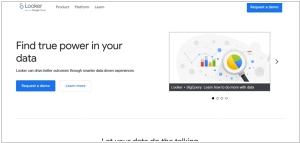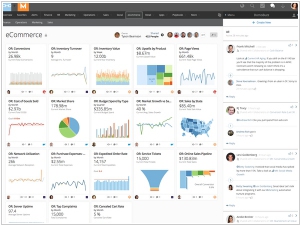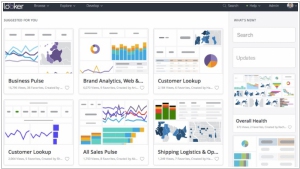Domo vs Looker
June 12, 2023 | Author: Michael Stromann
Domo and Looker are both popular business intelligence and data analytics platforms, but they differ in their approach and key features. Domo is a cloud-based platform that offers a comprehensive suite of features for data integration, visualization, and collaboration. It provides a user-friendly interface and intuitive drag-and-drop capabilities, making it accessible to users with varying technical expertise. Domo aims to provide a holistic view of business data, enabling users to analyze and gain insights from diverse data sources. On the other hand, Looker is a powerful data analytics and exploration tool that focuses on providing a robust platform for data modeling and exploration. Looker emphasizes the use of a modeling layer to create reusable data models, enabling users to perform ad-hoc analysis and build custom reports. It offers a developer-friendly environment with a SQL-based querying language. Looker's strength lies in its ability to handle complex data analysis and create tailored data models for specific business needs.
See also: Top 10 Business Intelligence software
See also: Top 10 Business Intelligence software
Domo vs Looker in our news:
2022. Google unifies its BI services under the Looker brand

Google Cloud has made an exciting announcement, revealing its decision to consolidate all of its business intelligence products under the unified brand of Looker. This consolidation brings together Looker, Data Studio, and core Google technologies such as artificial intelligence (AI) and machine learning (ML). Google emphasizes that this integration goes beyond traditional dashboards, which are the specialty of Google Data Studio, enabling businesses to incorporate data into various workflows and applications for informed decision-making. As a part of this transition, Google Data Studio will now be known as Looker Studio. Looker itself was a startup that Google acquired in 2020 for an impressive $2.6 billion. With this unified approach, Google officially enters the competitive landscape, challenging established players like Tableau, Microsoft Power BI, and QlikView.




